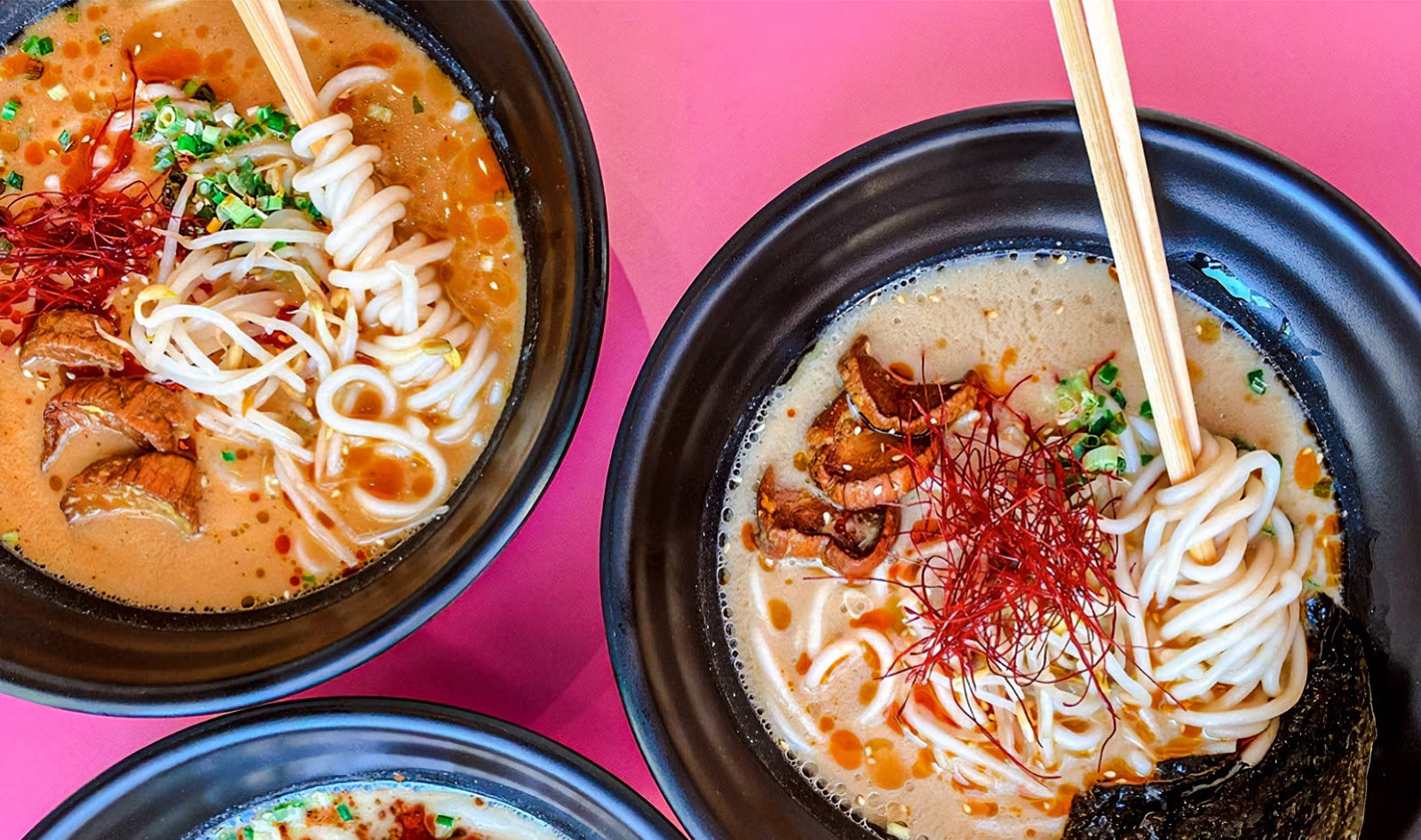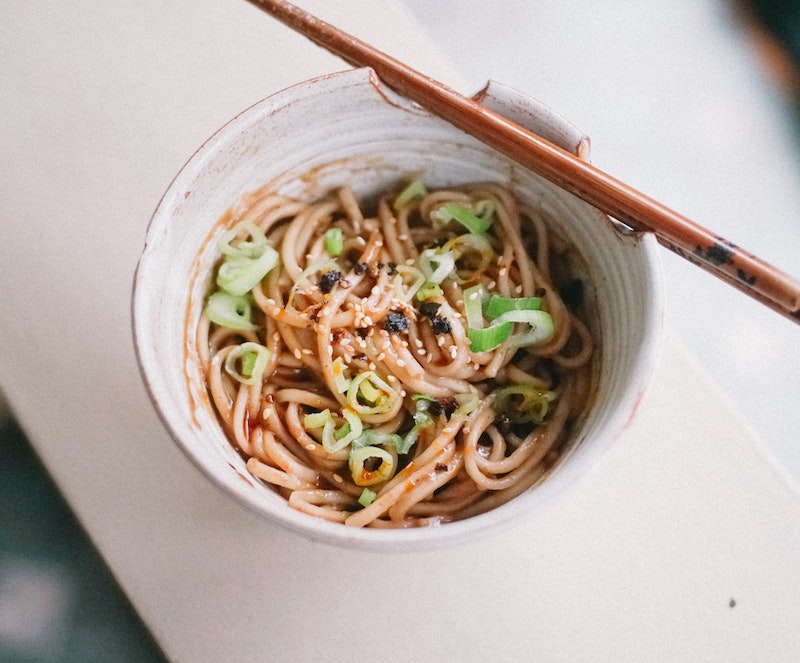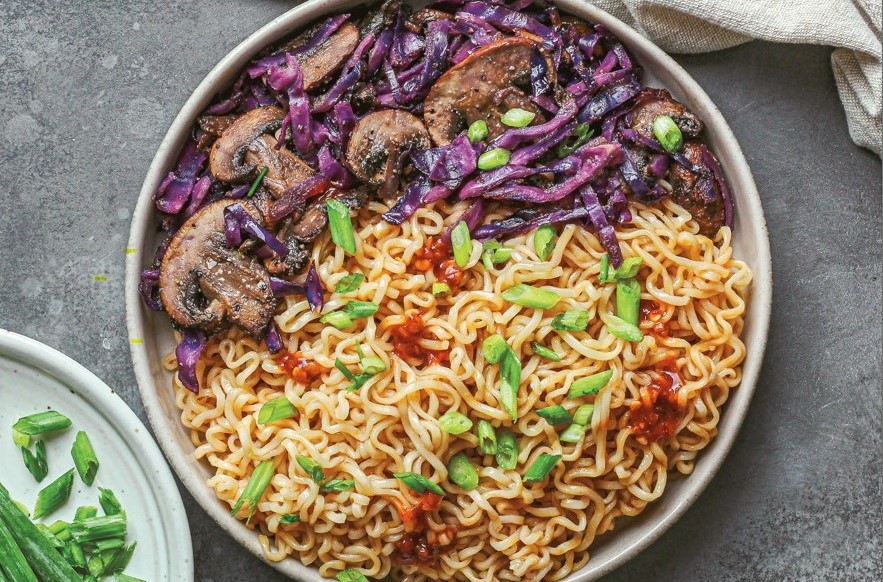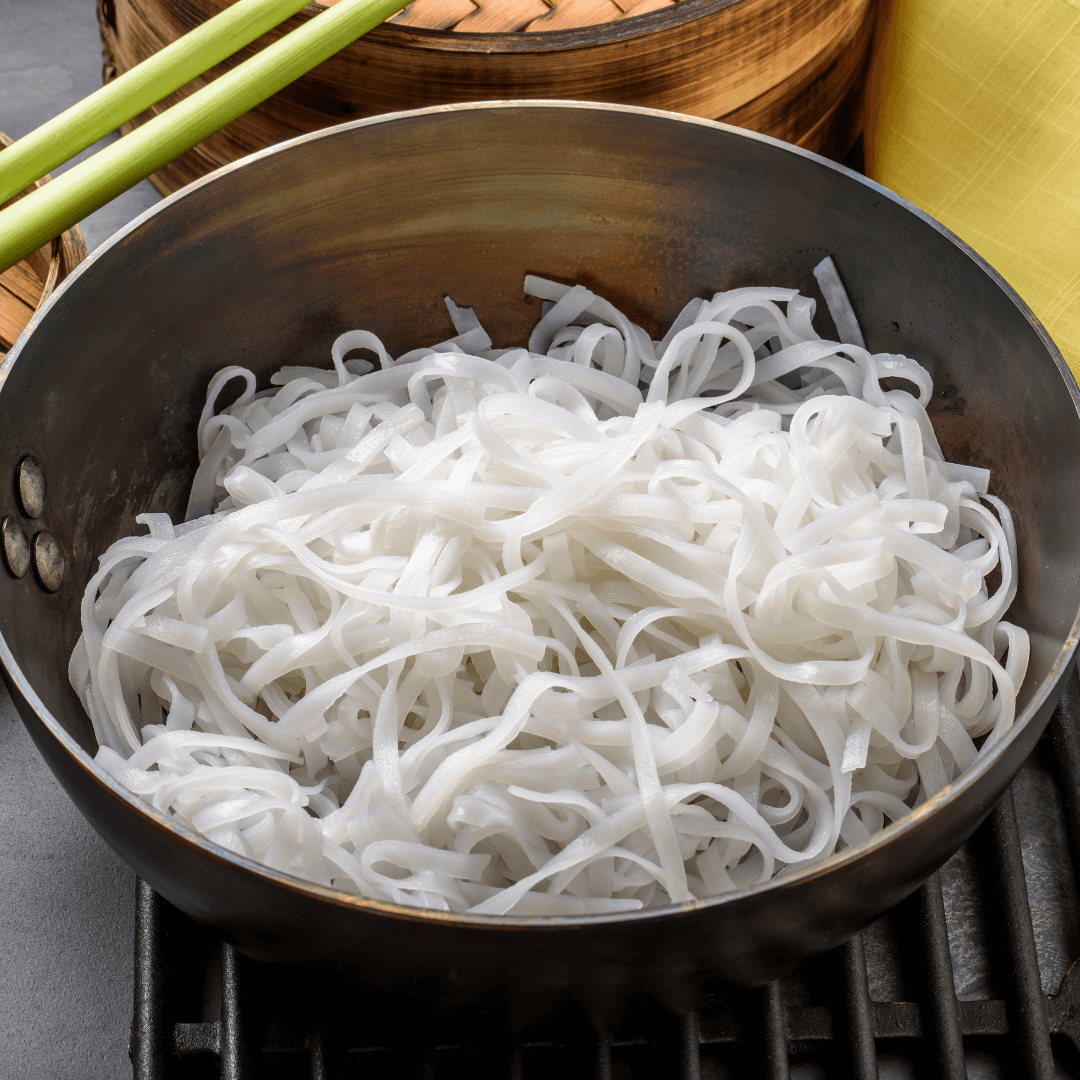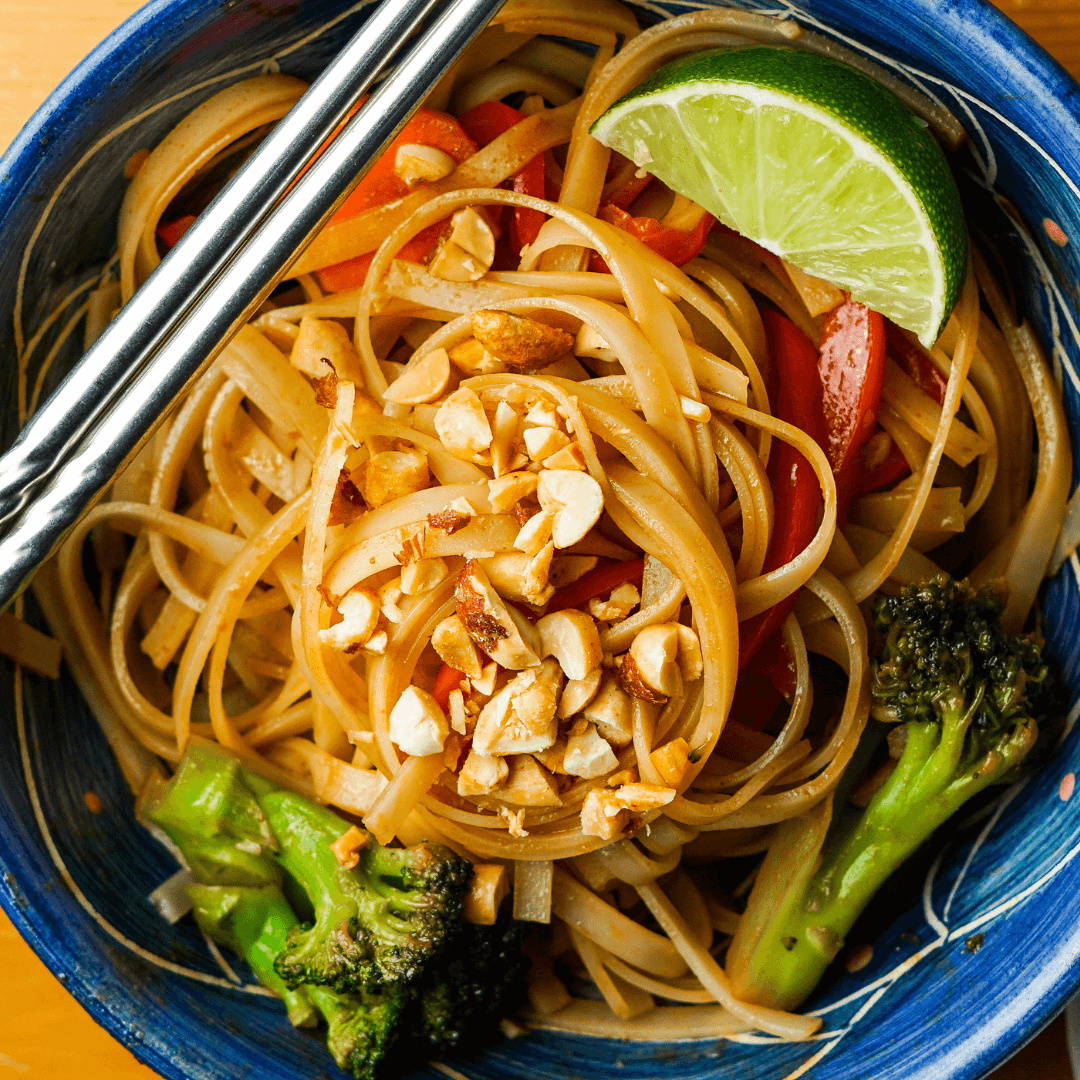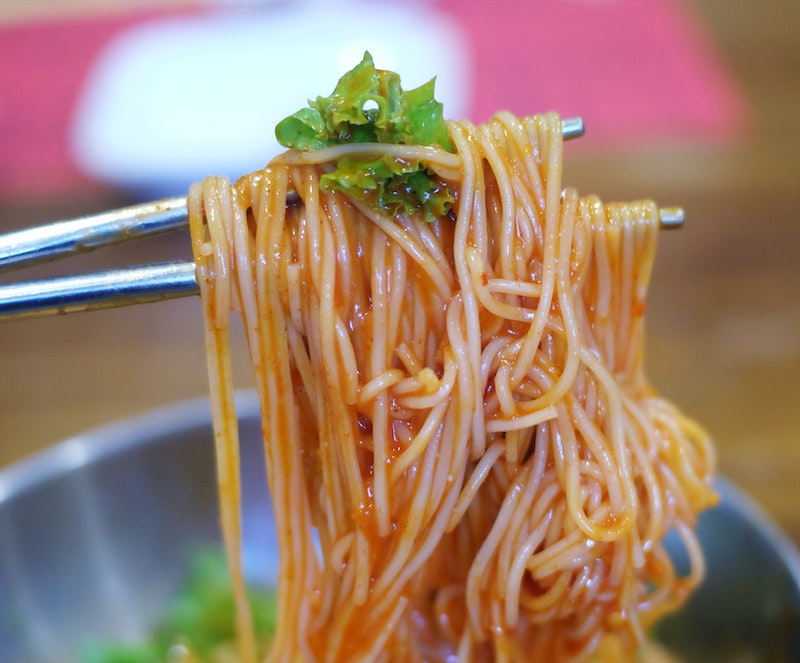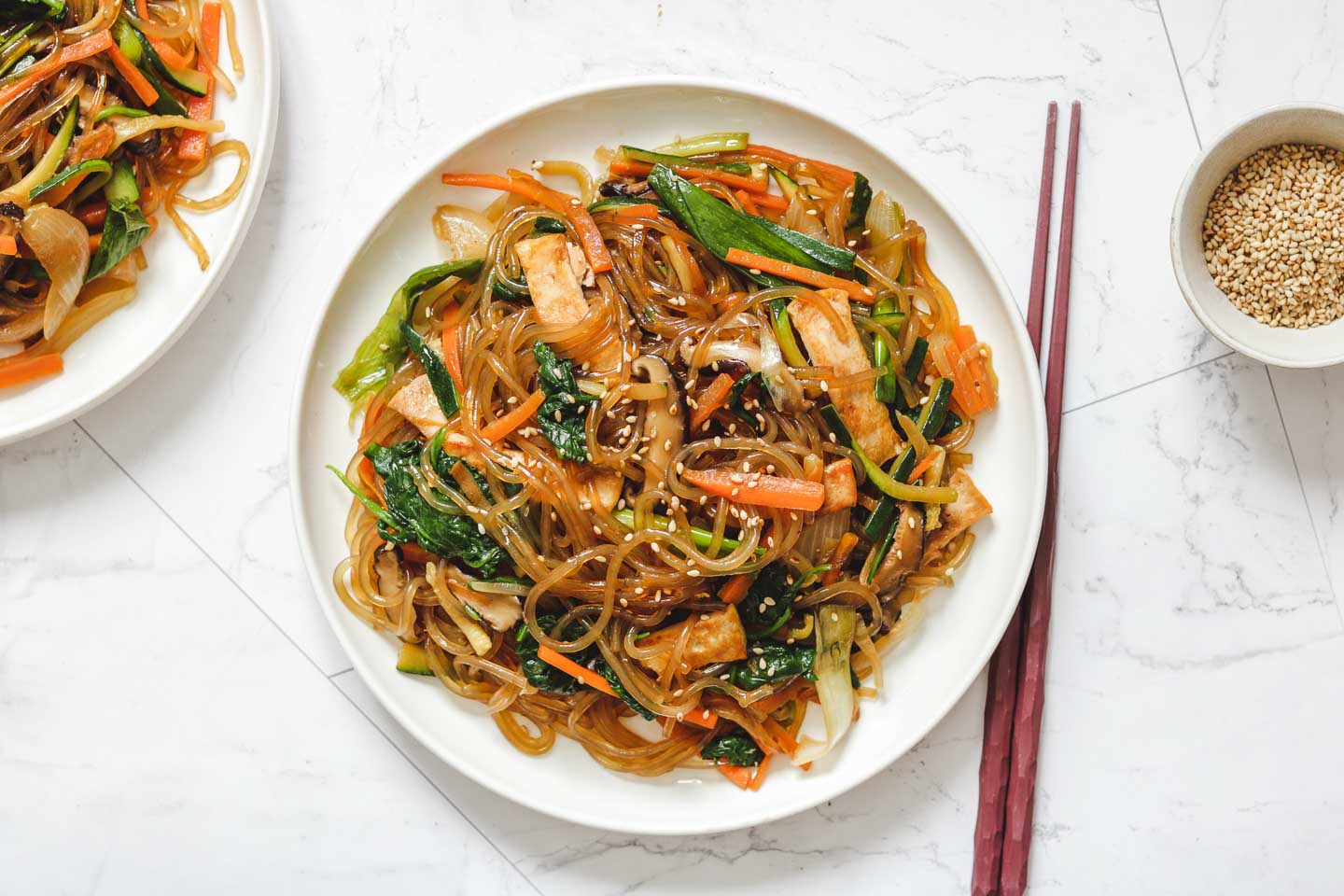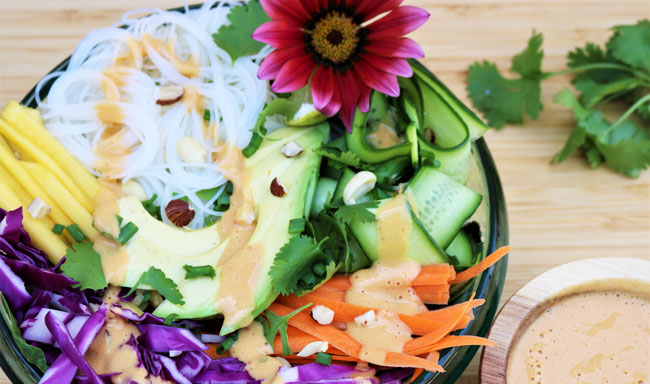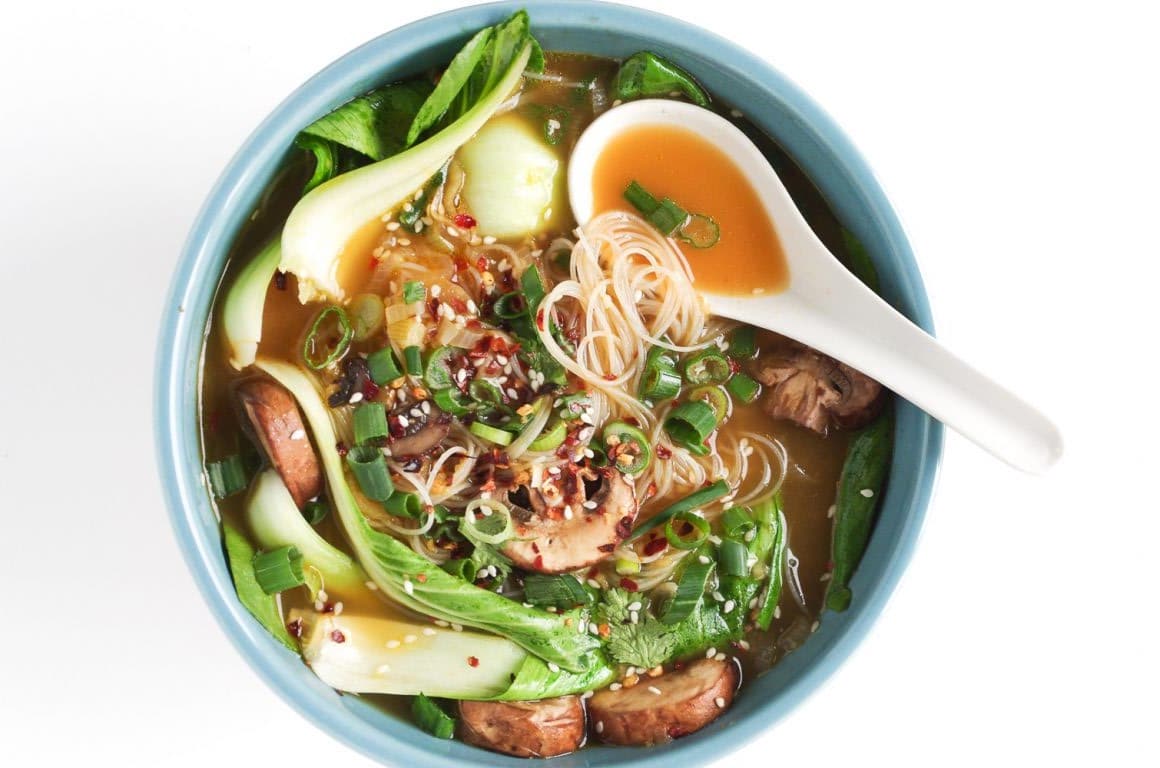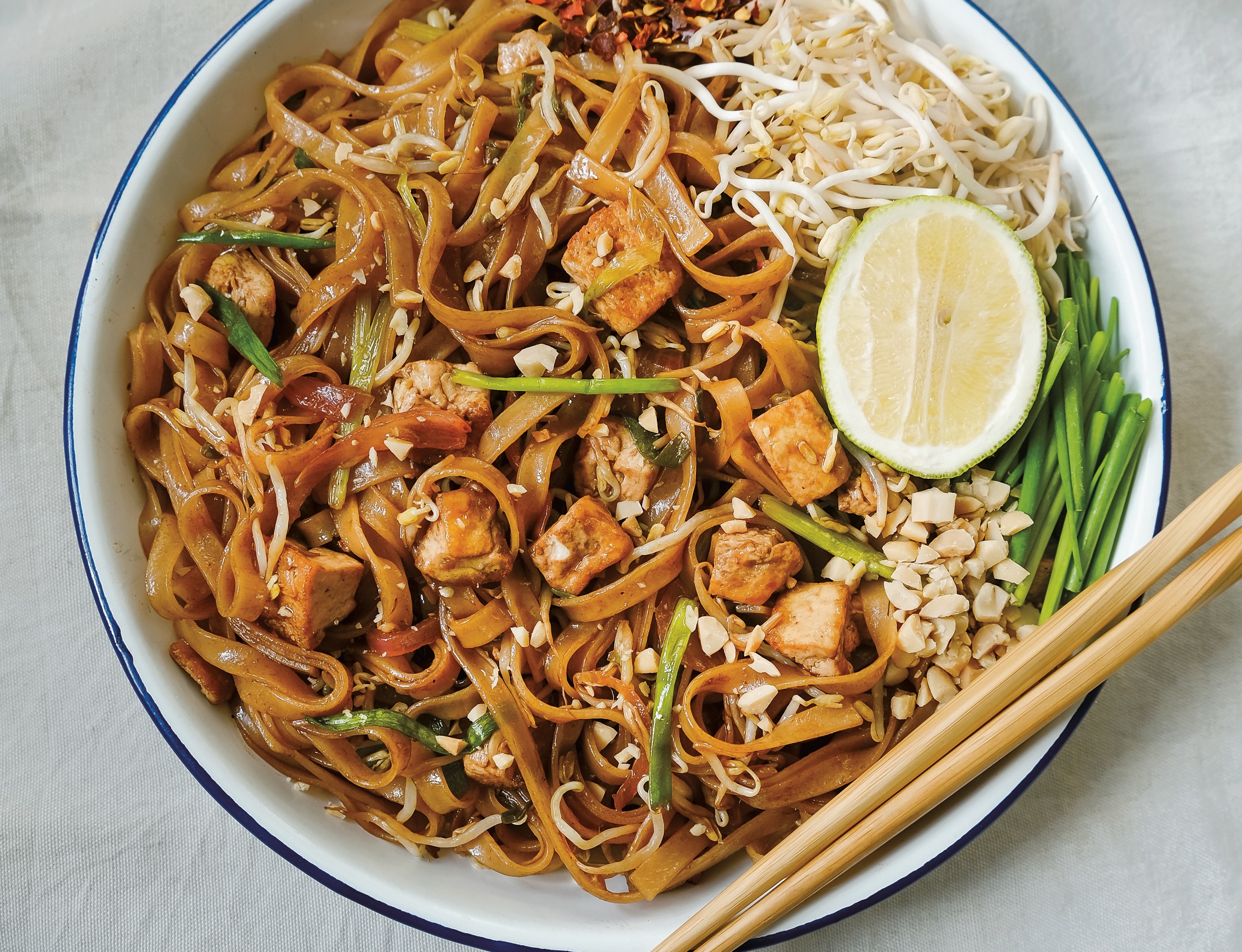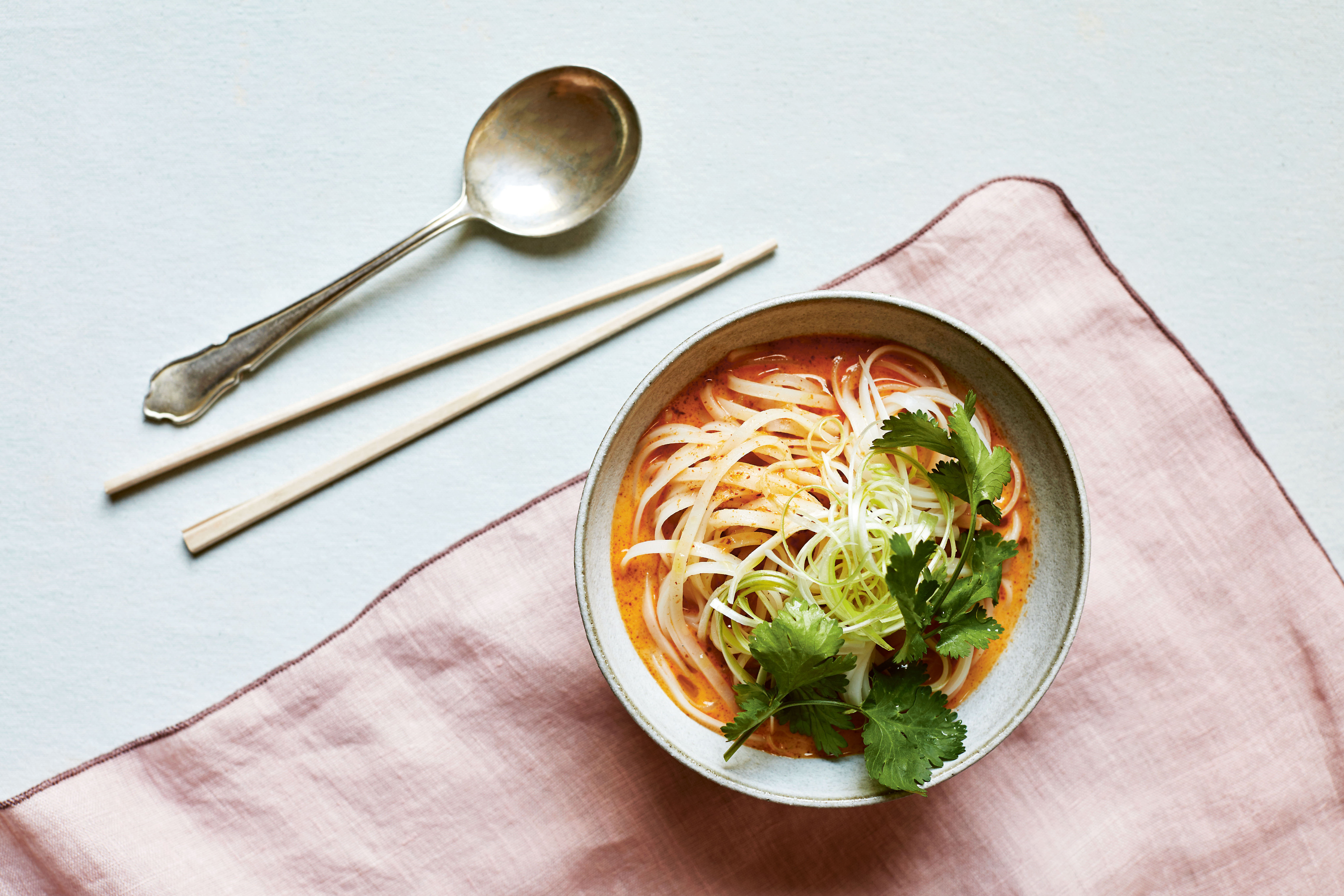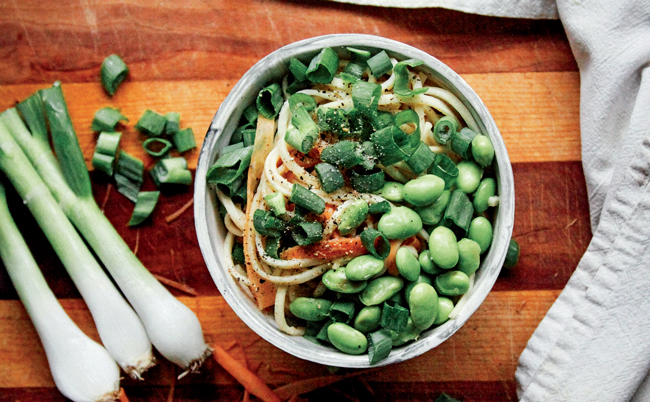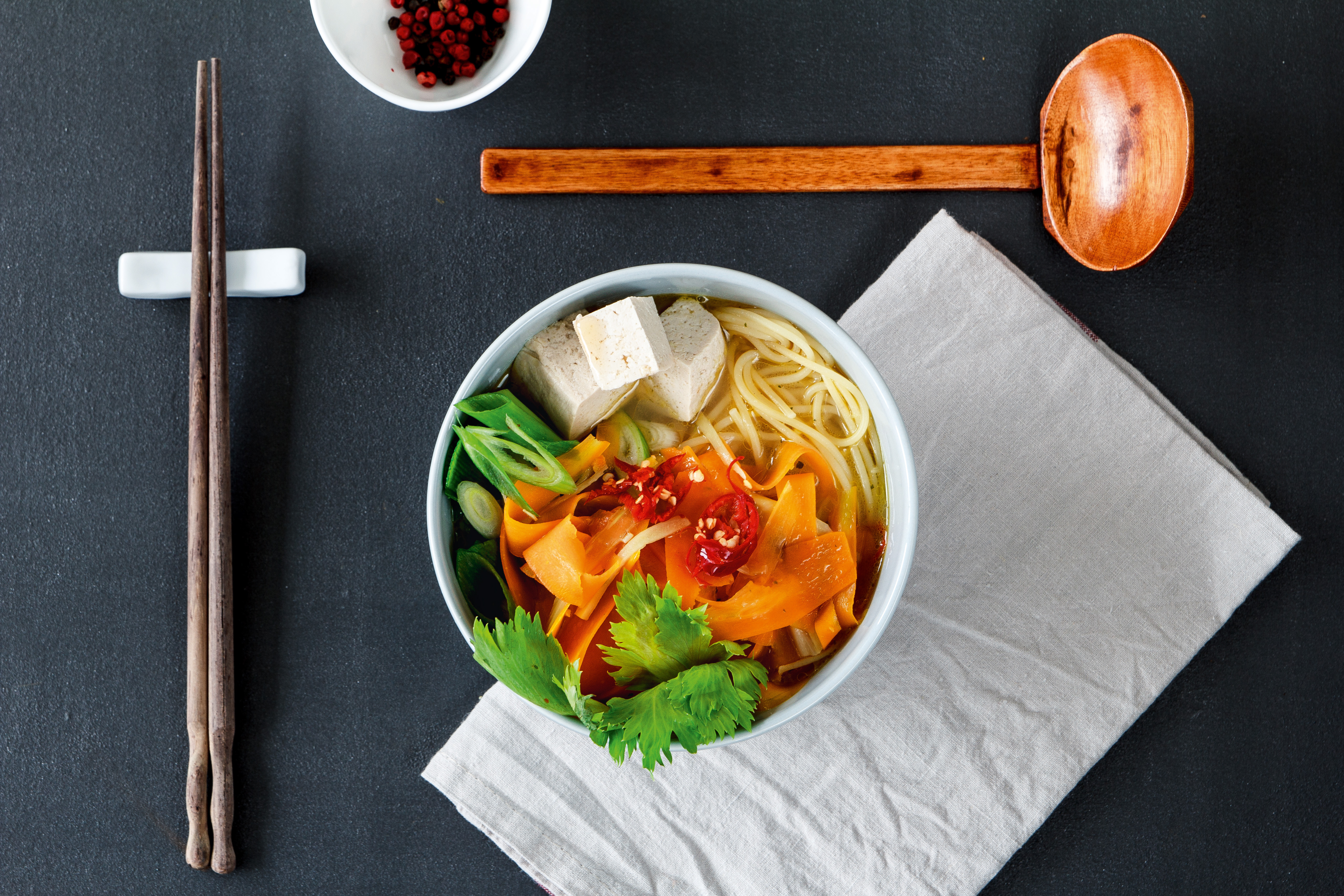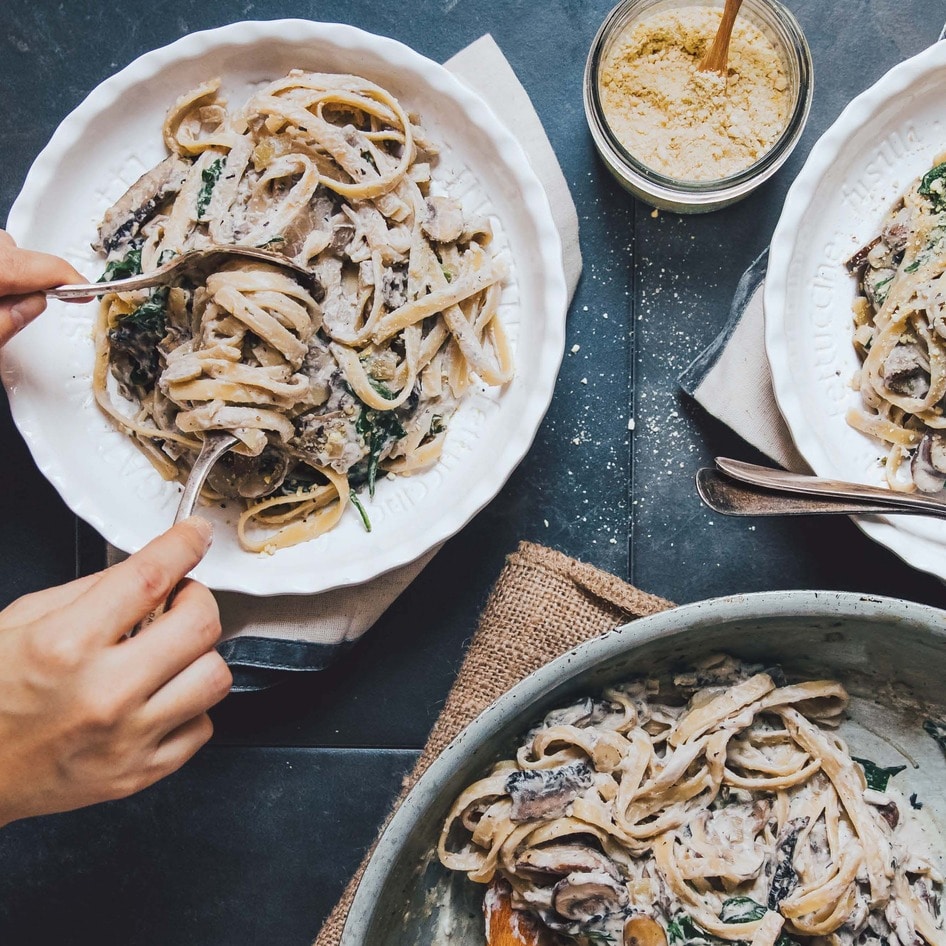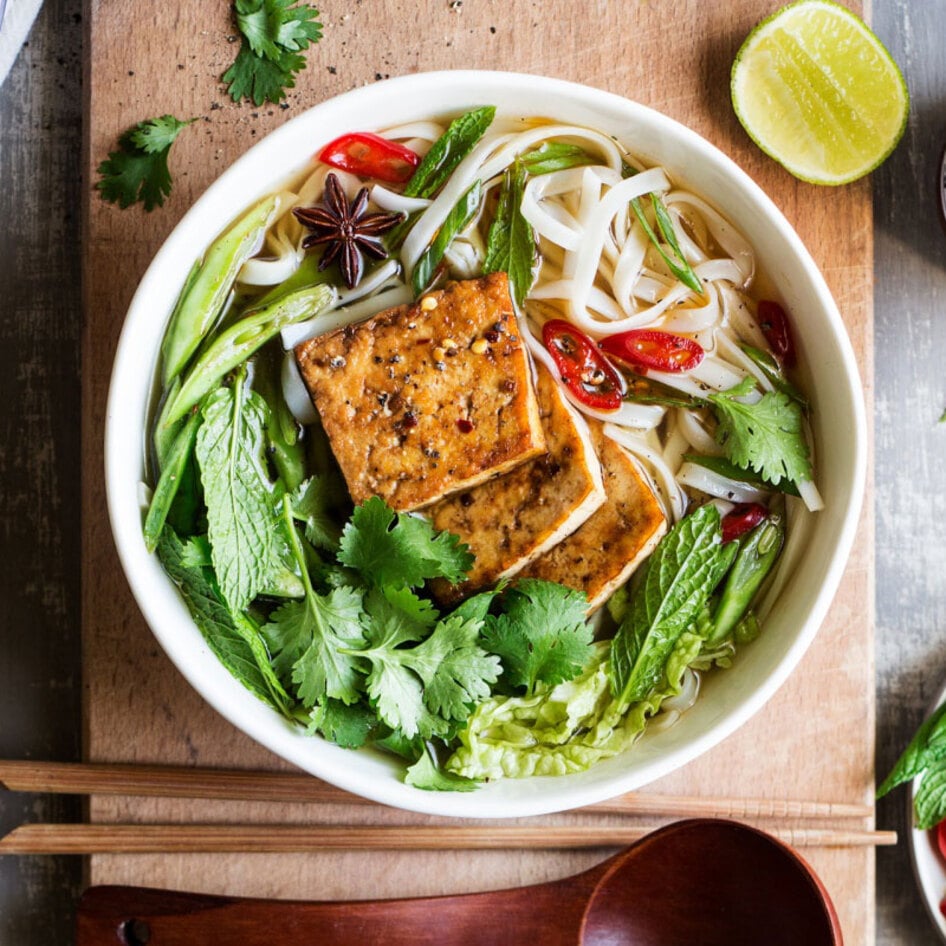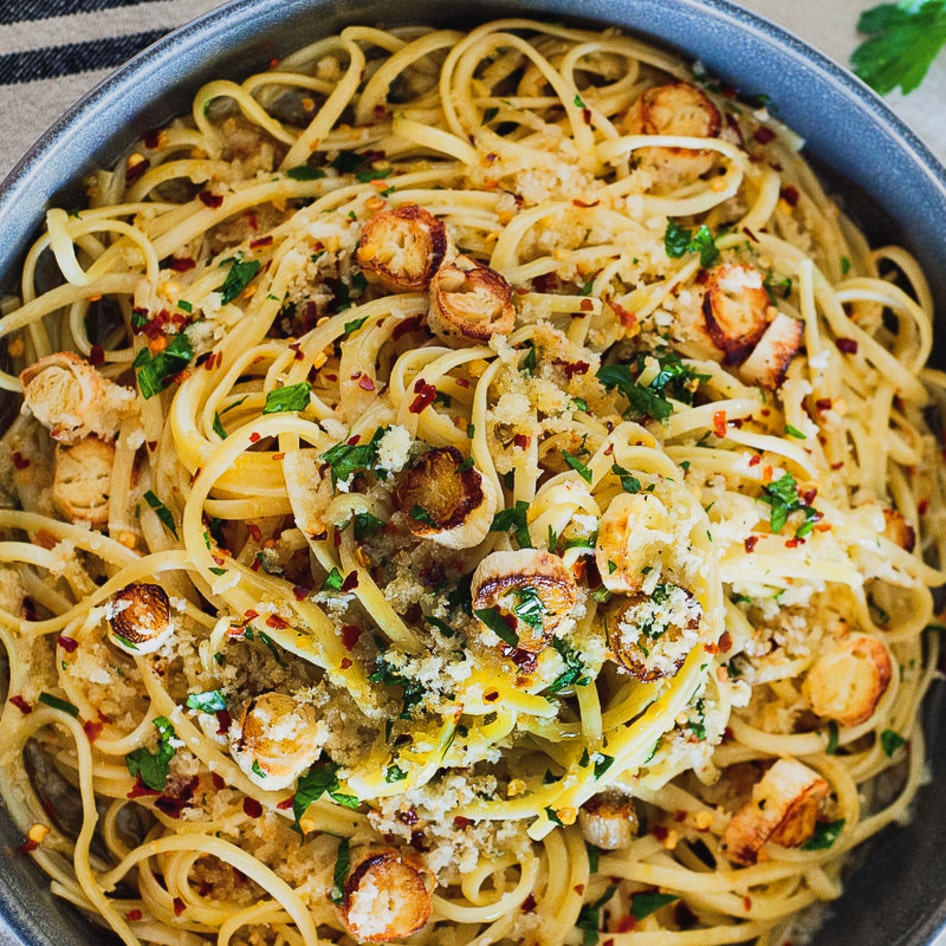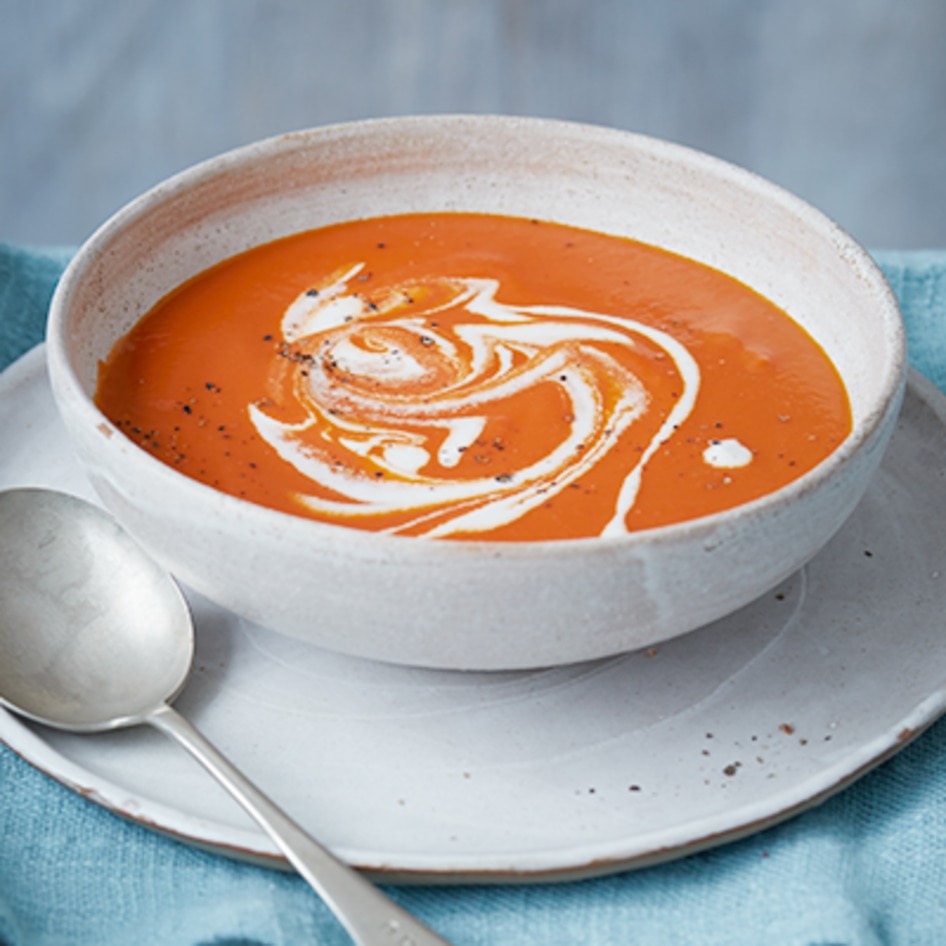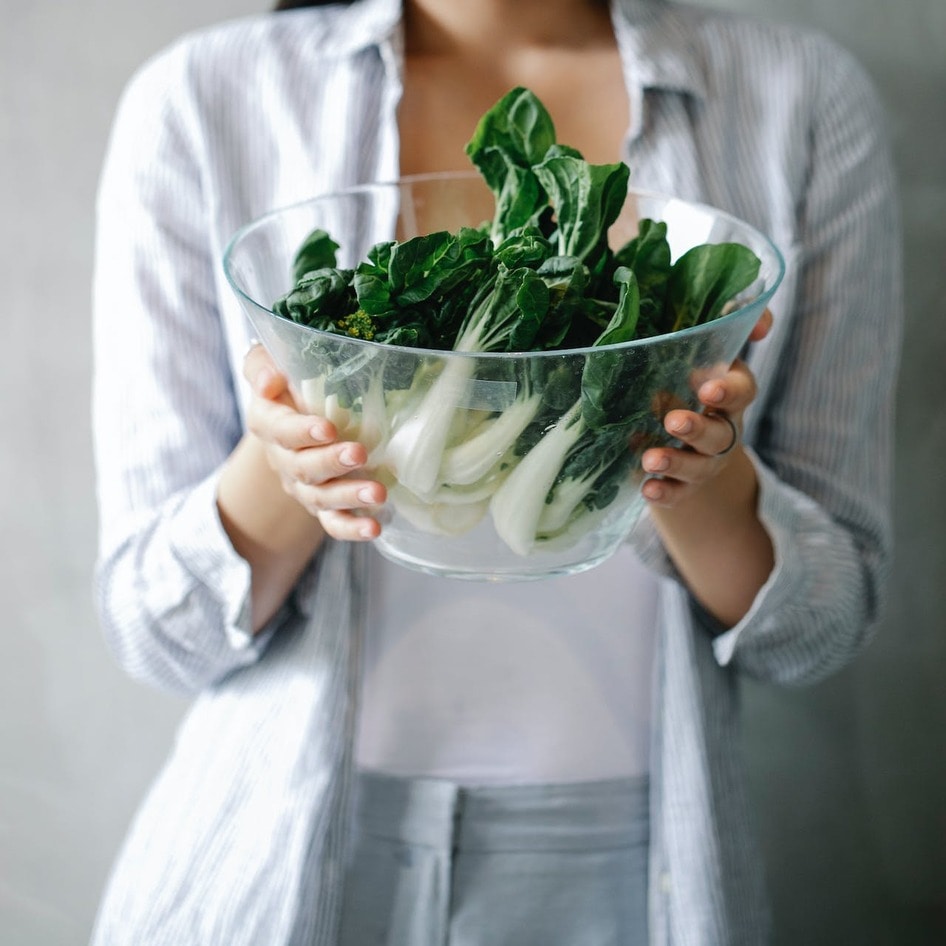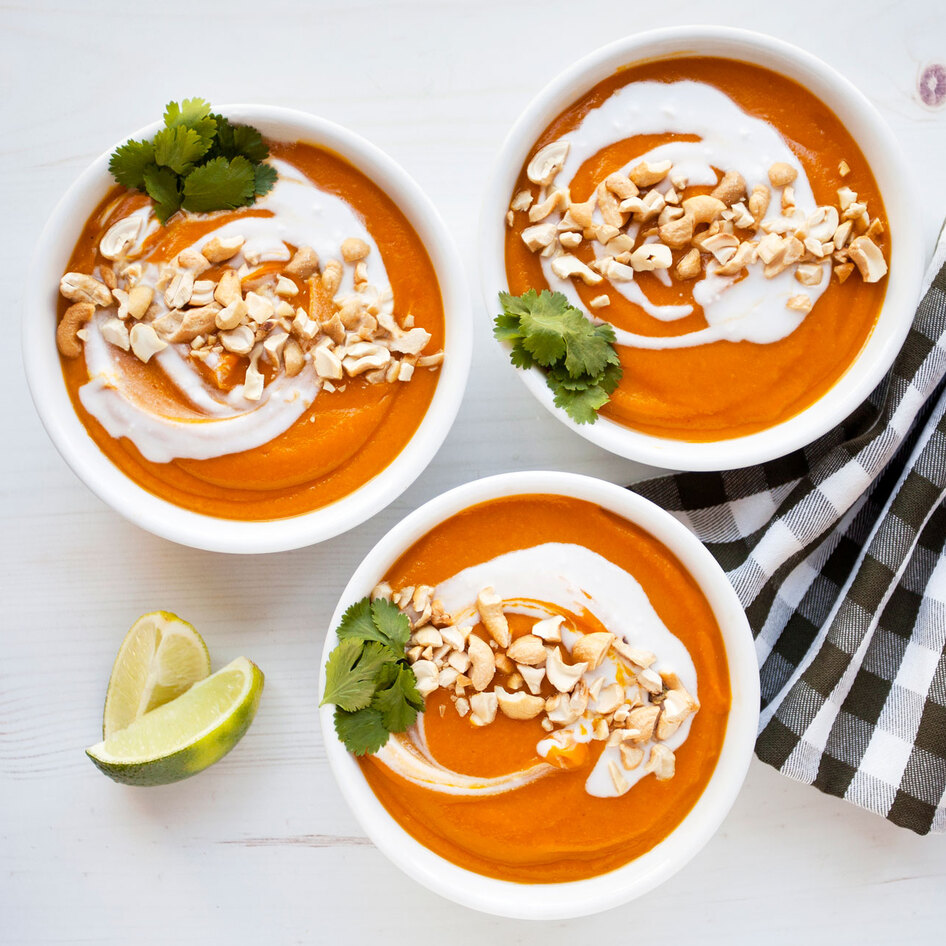Noodles that hail from Asia are simple in their composition yet complex in their versatility. Most contain only three to four ingredients (including water), and yet the variations are deliciously infinite, all depending on the type of flour used and the way in which the noodles are rolled and cut. There are squiggly, chewy ramen noodles; wide, slippery rice noodles; toothsome soba noodles; and so many more. Each noodle variety has its own taste and texture, and we’re going to explore some of the most popular Asian noodles, how they’re made, and what dishes they’re found in.
The difference between noodles and pasta
Both European (specifically, Italian) and Asian noodle varieties go back centuries, yet there is an accepted distinction among society between noodles and pasta. For example, one typically wouldn’t call chow mein a pasta dish, and yet its components aren’t too dissimilar from pasta primavera—an Italian dish also made of noodles, vegetables, and sauce.
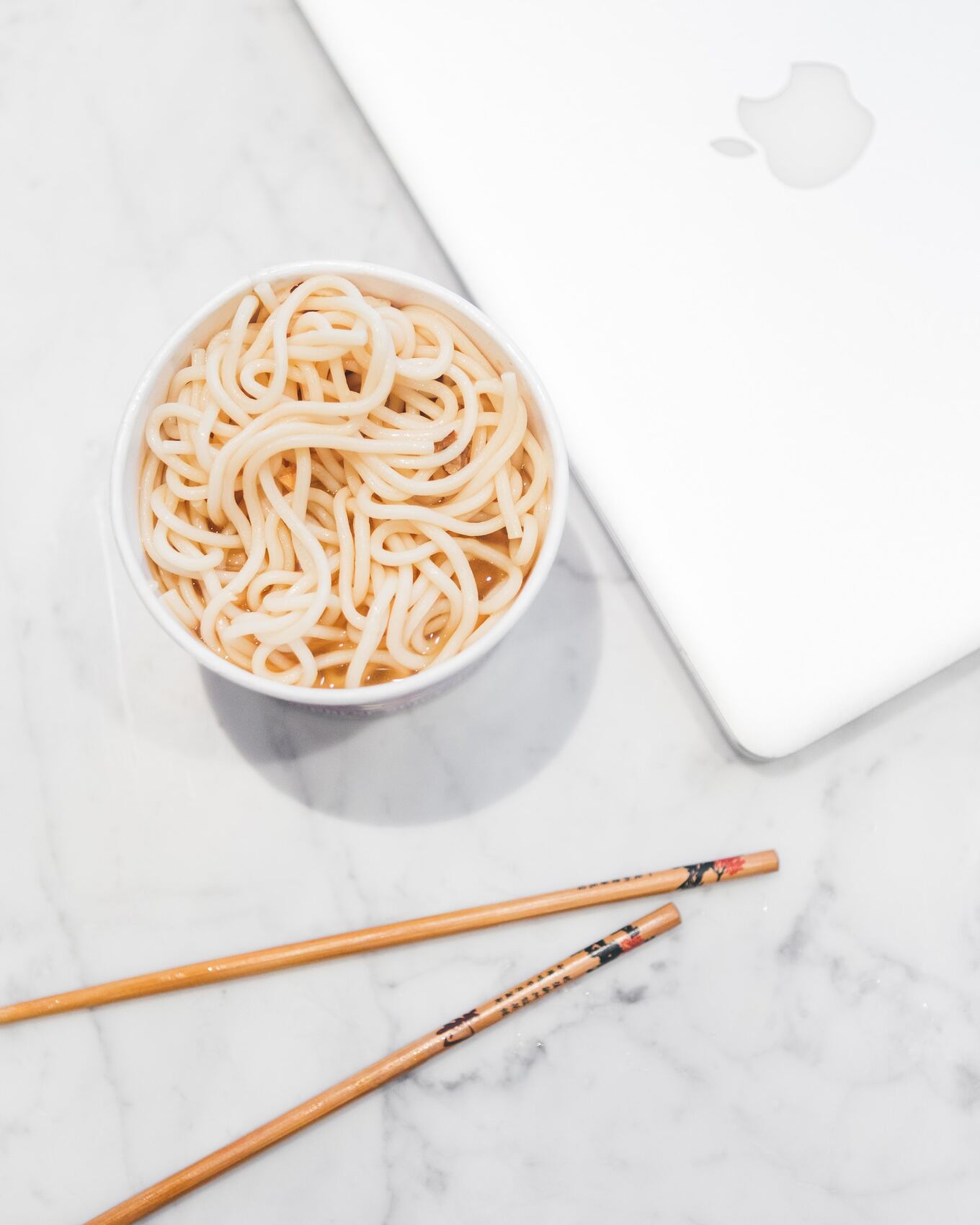 No Revisions/Unsplash
No Revisions/Unsplash
The main difference between noodles and pasta lies in the flour used to make it. Durum flour is almost exclusively used for pasta (with the exception of gluten-free varieties) whereas noodles can be made from a variety of flours including common wheat, rice, and buckwheat. Historians agree that civilizations in Asia created the noodle long before it emerged in Europe, but there isn’t a strong consensus on the origins of pasta. The myth that explorer Marco Polo brought back Chinese noodles to Italy in the 13th century has largely been debunked by food historians, but while some insist Arab nomads brought noodles to Europe before Polo’s travels, others believe Europeans developed pasta on their own.
“Noodles are one thing, pasta is another food altogether. They reflect two separate culinary cultures and identities that have developed in parallel, the only conjunction being the need for nourishment and, above all, to share around the same table feelings and everyday life events,” food historian Anna Maria Pellegrino told the South China Morning Post.
Types of Asian vegan noodles
The list below is by no means exhaustive, but it does include some of the most common Asian-style noodles you’ll come across in American grocery stores and pan-Asian restaurants.
1 Udon
Udon noodles can be round or wide, but the texture of either form is thick, chewy, springy, and silky, making them the perfect slurpable noodle. They’re made with wheat flour, water, and salt and are neutral in flavor. You’ll most often come across this Japanese noodle served in a flavored broth.
2 Ramen
Ramen noodles are more complex than some Asian-style noodles, but that doesn’t mean you can’t make them at home. These noodles are made with an alkalized solution mixed with high-protein wheat flour, water, and salt. The traditional method calls for kansui—an alkaline mineral water—though some homemade recipes swap this hard-to-find ingredient out with a mixture of baking soda and water. Note: while not the traditional method, we have come across a ramen shop or two that serve egg-based noodles. If the noodles look more yellow than you’re used to, it’s a sign they contain eggs.
3 Vermicelli
This thin, slippery noodle actually started as a pasta. It has Italian roots, but in the US, you’ll most often come across it in Vietnamese applications such as spring rolls, soups, and stir-fries. Beyond the sauces and condiments served with it, the largest difference between Italian and Vietnamese vermicelli is in the flour—durum wheat flour is used in Italy, whereas rice flour is used in Vietnam.
4 Soba
Made from buckwheat flour, these hearty noodles have a toothsome bite and a pleasantly grainy texture. They’re often served cold in a sesame noodle salad or alongside a chilled and flavorful dipping broth.
5 Rice
Vietnamese-style vermicelli falls under the rice noodle category, but the variations of this versatile noodle are not confined to a thin, long strand. Rice noodles can be thin and wispy like angel hair or thick and flat. You’ll come across them in a number of dishes such as pad Thai, pad see ew, and pho.
6 Glass
These Asian noodles are translucent, long, and thin. They’re naturally gluten-free and most commonly made from mung bean or sweet potato starch. Glass noodles don’t have a distinct flavor, but soak up the broth or sauce they’re paired with. These noodles have been adopted in a number of Asian cuisines from Korean japchae to Thai pad woon sen.
How to make vegan Asian noodles
When making Asian noodles, the process can certainly be considered a project. The ingredients and details vary from noodle to noodle, but noodle-making typically involves combining wet ingredients (most often water or a water solution) with dry ingredients (some kind of flour), kneading, resting, folding and cutting, and finally boiling. It’s one of those skill sets that gets easier and more intuitive with practice. Homemade noodles aren’t particularly complex ingredient-wise—they just require some patience.
Where to buy vegan noodles
Not up for noodle-making just yet? You can find plenty of dried, vegan-friendly Asian noodle options at supermarkets and independent retailers. Udon, rice, soba, vermicelli, and ramen noodles are all fair game—just avoid any boxes marked egg or chow mein noodle, as those contain eggs. Cookbook author Hannah Che recommends swapping egg-based soup noodles for fresh ramen or thin wheat noodles and mung bean vermicelli noodles for chow mein.
Vegan noodle recipes
Asian-style noodles correspond with specific dishes. There is a bit of wiggle room, and the noodle police won’t come knocking on your door if you pair udon with ramen broth, but we do recommend trying the dish-as-is first, then have fun experimenting if you choose. From classic pad Thai to chilled noodle salad, here are seven solid noodle recipes to try.
1 Sweet and Spicy Noodle Salad
We love a “not salad” salad. This dish is composed of chewy rice noodles, a bounty of mixed greens, sweet mango, colored veggies, and a rich and nutty peanut sauce to bring it all together. It almost tastes like a very large deconstructed spring roll.
Get the recipe
2 Easy Vegan Ramen Noodles with Cabbage and Mushrooms
Homemade ramen isn’t as intimidating as one may imagine. This simple, tried-and-true recipe is easy enough for the novice cook, and the results are far more satisfying than instant ramen.
Get the recipe
3 Vegan Ginger Garlic Noodle Soup
Chicken noodle soup pales in comparison to the nurturing powers of this comforting bowl of noodle soup. The broth is enriched with fresh ginger and plenty of garlic, complemented by meaty mushrooms, tender bok choy, and silky rice noodles to give this soup some body and texture.
Get the recipe
4 Saucy Vegan Pad-Thai with Crispy Pan-Fried Tofu
Chewy, thick rice noodles soak up a bold peanutty sauce accented with fish sauce, tamarind, and lime juice, making for a well-balanced taste that hits sweet, salty, and sour notes. Pan-fried tofu adds a crispy texture and additional protein for a meal that will satiate you for hours.
Get the recipe
5 Spicy Vegan Noodle Soup
All you need is five ingredients, one pot, and 15 minutes to make this creamy, spicy noodle soup. It’s rich—the broth is made from full-fat coconut milk and red curry paste—so if you’re looking for a lighter option, try reduced-fat coconut milk or cut the richness with a bit of vegetable broth.
Get the recipe
6 Vegan Udon Noodle Bowl
Simple, quick, and flavorful—this is the kind of cooking we want to master. This noodle dish only requires seven ingredients but provides the same amount of comfort and satisfaction as a complex pad Thai. It’s perfect for a busy weeknight when you’re crunched for time but still crave something healthy and nourishing.
Get the recipe
7 Speedy Vegan Miso Ramen
This ramen is all about the noodles and toppings. Tofu, bean sprouts, sliced carrots, and scallions are a great start.
Get the recipe
For more vegan eats, read:
JUMP TO ... Latest News | Recipes | Guides | Health | Shop

